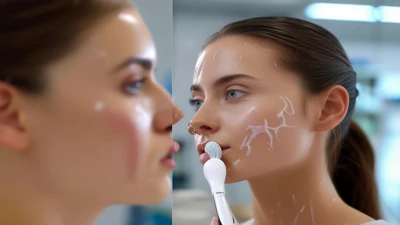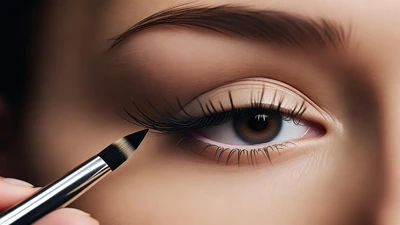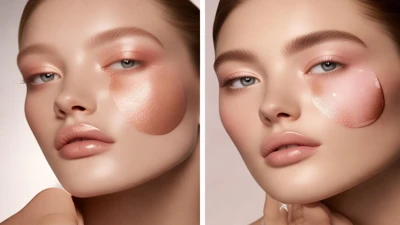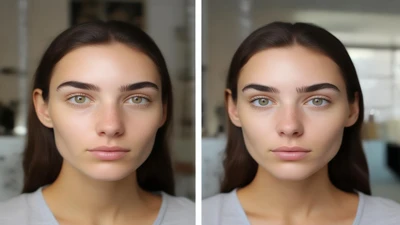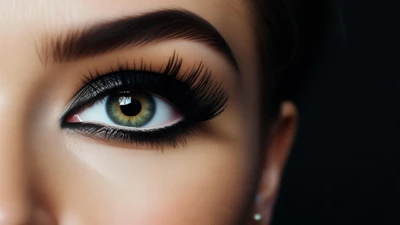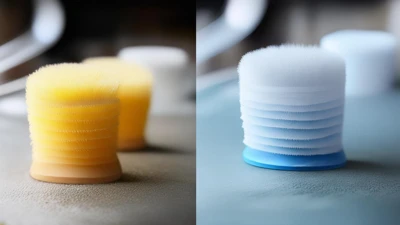
Electric toothbrushes may be better for gums. Manual toothbrushes are also a good choice.
The Persistent Argument.
Electric or manual toothbrushes: which is better for gum health? This question has led to much discussion among dentists and regular users. Traditional manual toothbrushes have served us well for a long time. In recent years, however, electric toothbrushes have attracted attention with claims of enhanced cleaning power and greater effectiveness in oral hygiene. This essay analyzes the utility of the tools through multiple lenses: clinical proof, user satisfaction, economic trade-offs, ecological consequences, and tech upgrades. Personal opinions help round out the evaluation.
Clinical Evidence: Insights from Scientific Research.
Cleaning Away Plaque to Lower Gingivitis.
Based on a 2014 Cochrane Review of 56 studies, electric toothbrushes provide a 21% improvement in plaque removal and an 11% improvement in gingivitis reduction compared to manual toothbrushes after three months. Oral-B offers electric brushes that oscillate and rotate. These brushes have shown outstanding improvements. Research published in 2019 in the Journal of Clinical Periodontology revealed that electric toothbrush users had 22% less gum bleeding. Manual brush users did not experience this benefit.
Nonetheless, a 2018 study in the International Journal of Dental Hygiene concluded that manual toothbrushes can yield similar outcomes. This is possible with the right brushing approach. Some individuals use excessive pressure when brushing, harming their gums over time.
Pressure sensitivity can lead to gum recession.
Pressure sensors in electric toothbrushes, including Philips Sonicare models, are meant to stop users from brushing too aggressively. Using manual tools for aggressive brushing can erode enamel. It can also damage gums. The journal General Dentistry reported in 2021 that 38% of individuals using manual toothbrushes used excessive force, while just 12% of those using electric toothbrushes had the same issue. It indicates that electric brushes can minimize user-related issues. This is especially true for those with sensitive gums.
User Experience Design Must Consider the Tension Between Convenience and Control.
The Product is Easy to Use. It is Also Accessible.
For individuals with dexterity issues, electric toothbrushes are a useful solution. They are also ideal for kids and elderly users. A survey by the ADA in 2020 revealed that 65% of users attributed healthier gums to features like timers and automated motion. For instance, Sarah, a 45-year-old mother of three, mentioned that her dentist observed reduced inflammation since she started using an electric brush, and now her kids brush for the full two minutes.
Affordability and tactile control are benefits of manual toothbrushes. Consumer Reports analyzed in 2022 that 72% of manual brush users favored the flexibility to modify their brushing approach. However, this control calls for education; without the right technique, the benefits will decrease.
Long-Term Behavioral Impact.
The apps bundled with electric toothbrushes are great for tracking how well you brush. They also promote better habits. According to a 2023 study in JMIR mHealth and uHealth, app-connected brushes led to a 17% boost in gum health after six months of use. People who love technology will enjoy these features. However, others may find them overwhelming.
Weighing the Pros and Cons of Investment Versus Affordability.
Beginning Costs and Long-Range Expenditures.
The price of electric toothbrushes can be as high as $50 to $200, whereas manual brushes usually cost just $2 to $10. In 2017, a Health Economics study showed that using an electric brush could result in annual savings of $120 on dental care thanks to fewer cavities and healthier gums. Take John, a 32-year-old engineer, for instance. He mentioned, 'The initial cost was painful, but I've managed to avoid two fillings over the past three years.'
While manual brushes are within reach for low-income populations, the cost of frequent replacements every few months adds up over time. It was reported in 2021 by Environmental Science & Technology that Americans get rid of 1 billion manual toothbrushes annually. This contributes heavily to plastic waste.
Environmental Considerations.
Electric toothbrushes are associated with electronic waste. To reduce this impact, Oral-B has introduced recyclable brush heads. While manual brushes are cheaper, they generally cannot be reused after disposal. Consumers were urged by a 2020 journal article to focus on eco-conscious electric options or brushes made from biodegradable materials.
The Future of Gum Care is Driven by Tech Innovations.
Advanced Features.
Some of the standout features of modern electric toothbrushes are AI-driven coaching, 3D brush heads, and ultrasonic vibrations. The Oral-B iO series, for instance, uses tiny vibrations to reach interdental spaces and has been proven to cut down gingivitis by 30% during clinical trials. Sonicare's DiamondClean Smart uses Bluetooth technology to offer live feedback, guiding users to problematic sections.
Special Modifications for Gum Sensitivity.
Electric brushes that have adjustable settings are suitable for people with sensitive gums. Soft-mode electric brushes helped reduce bleeding by 40% in users with periodontitis, as reported in a 2022 study from the Journal of Dentistry. This was compared to manual tools.
Manual Toothbrushes Have Their Advantages.
Critics claim that manual brushes can be just as effective if used properly. There is not enough proof, according to a 2019 Cochrane Review meta-analysis, to say that electric brushes are better than manual ones for everyone. Dr.Emily Carter, who works as a periodontist, believes that consistency in using a toothbrush is more important than the toothbrush itself. Technique trumps tool.
My Personal Journey as a User.
Having switched from manual to electric brushes five years ago, I noticed improvements right away. I had reduced gum bleeding, and my hygienist was impressed by how clean my teeth were. I confess that my manual brushing lacked discipline, while electric brushes kept me consistent. The investment brought me rewards, but I appreciate the skill of manual masters.
Weighing the Evidence Against Individual Requirements.
Superior plaque removal, pressure control, and behavioral nudges make electric toothbrushes slightly better for gum health. Informed users can still rely on manual brushes if they follow the right method. The decision finally depends on individual preference, budget, and environmental values. With improvements in dental technology, the divide could increase, yet the main principle endures: proper brushing is essential.







